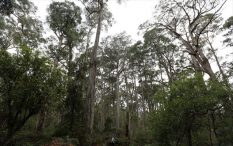Tag: Egypt
-

Cyprus-Egypt pipe deal opens door for East Med gas
Cyprus has signed a deal to build a pipeline to supply Egypt with natural gas once production starts from the Aphrodite field located offshore the Mediterranean island. The agreement sets the political framework for additional commercial agreements, Cyprus’ Energy Minister Yiorgos Lakkotrypis and Egypt’s Petroleum Minister Tarek el-Molla said. Asked if this gas will also be exported to Europe…
-

Winners announced in the Science City Competition in Egypt
Weston Williamson + Partners, a design firm from the United Kingdom under the direction of Philip Turner, has been awarded First Place in the recently concluded single phase, open, international competition for a “Master Plan and Conceptual Design of the Science City,” to be located in 6th of October City near Cairo. The competition was…
-

Egyptian researchers discover a way to grow forests in the desert with sewage
Desertification is a major issue throughout Africa, but there’s a simple way to stop the spread of deserts into fertile land: planting forests. The problem is that in the regions hardest hit by the phenomenon, there simply isn’t enough clean water to properly nurture the trees and keep them healthy. But an innovative project in Egypt proves that…
-

Distillerie ZOTTOS: A Greek Family Affair
In 1984 I rented an apartment in the Cairo district of Mounira, just off Kasr el Aini Street in the center of the city. There was a small grocery store near my flat called Blue Nile. Today a Coptic family owns the store, but back then I believe it was still owned by its original…
